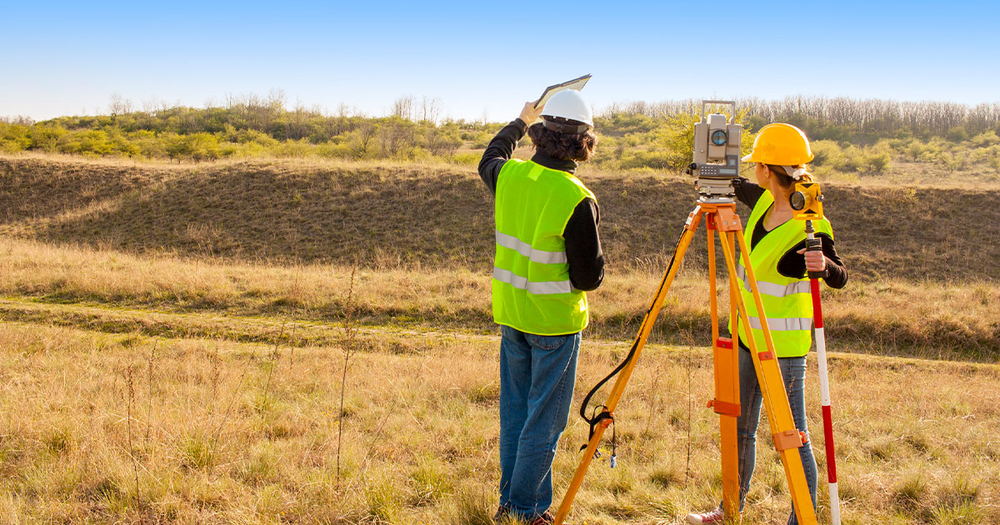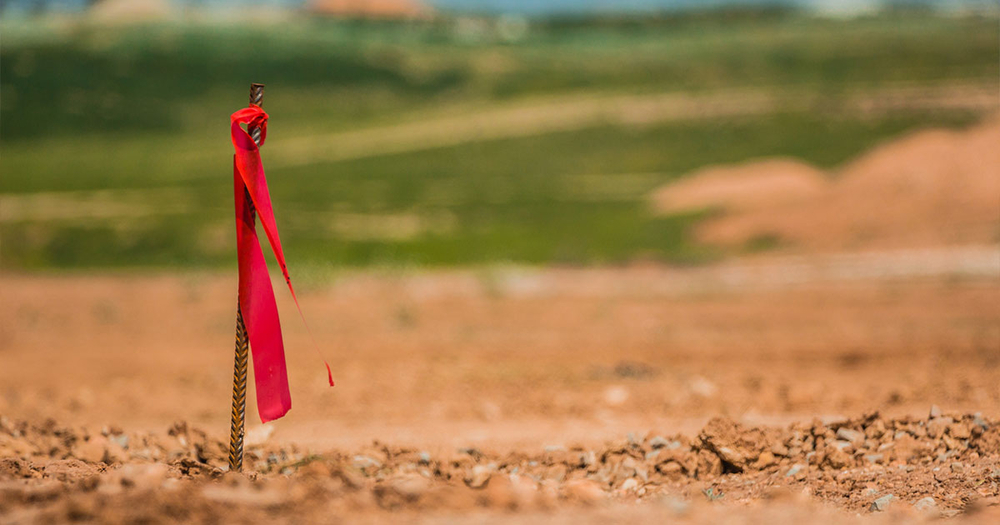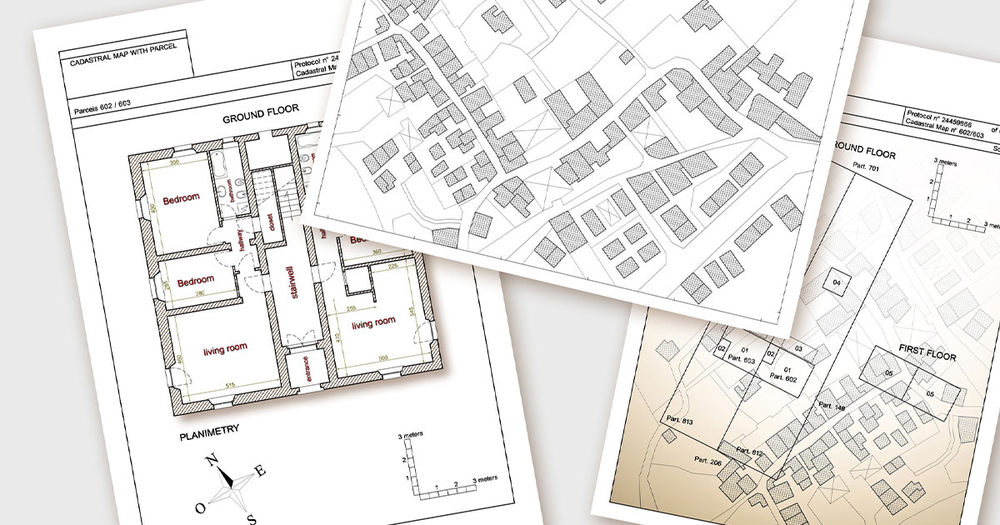
Many people have never heard of land surveying. It is not the most glamorous part about buying, selling, and building property. However, it is a necessary piece of the puzzle. A quick overview of land surveying can save you lots of money down the line.
A land survey is a process that people use to find your propertyís boundary lines. Property lines are the markers of where your property ends, and a neighboring property begins.
Property lines are not always as they appear on a property map. Sometimes, these maps are inaccurate or imprecise. In order to be sure about the property lines, it is necessary to conduct a land survey.
The land survey process includes a number of steps. Land surveyors need to find county records of property maps, collect data of the property, do calculations, restore lost corners, and prepare accurate descriptions of the property.
A land survey can determine several attributes of your property that are of use. First, it allows you to determine the precise boundaries of your property. This information can allow you to identify the locations of structures, additions, and improvements of your property.
Second, it can find the slopes and other geographic features of a property. This information may be helpful for a property owner that is planning to build more on their land and needs to know its features.
Third, it finds the locations of easements and utilities. Easements offer the right to use someone elseís property for specific reasons.
Finally, a land survey can identify whether the land is a floodplain. This is very good information to know before buying a property, as to avoid accidentally acquiring property that is prone to flooding.
The best option is to hire a land surveyor professional. Professional land surveyors are trained to ensure the highest quality of property survey. Their use of law, math, engineering, and physics enables them to do a good job. Furthermore, they have specialized equipment, such as GPS, 3D scanners, prisms, software, radios, and robotic total stations.
It is possible to conduct a land survey by yourself. However, there are several limitations of this option. First, it is not guaranteed to be as accurate as a professional land surveyor. Property owners that make mistakes risk facing more costs down the line, if they make a mistake, such as accidentally building on a neighborís property.
In addition, a professional land surveyor has all the tools that are necessary to get the job done. That said, for those that want to want to acquire the tools for themselves, Baseline Equipment can offer that. Hand tools, such as compasses, hammers, brush clearing tools, and flashlights can assist with heading in the right direction. Flagging tape, pin flags and marking paint and chalk can be used as location markers.

It is vital that surveyors can hold deeds, plats, and take notes while doing a property survey. Investing in field books, paper, and templates, as well as permanent marker or other writing utensils will provide another level of security against this issue.
Levels are used to measure elevation. Measuring devices such as pocket tapes, folding rulers, measuring wheels, and Laser Measuring tools are vital for any property survey. See the full selection of tools, and make sure you are set up for success before heading outside.
Keep in mind that there may already be a public record of a land survey created of your property. The building departmentís office or county recorderís office are great places to start looking. In some places, you may want to start at the local tax assessorís office.

How Much Does a Land Survey Cost?
They cost of a land survey is not always the same. It depends on company, the individual land surveyor, and the property at hand. Furthermore, it depends on how long it will take and how hard it will be.
The average cost is roughly $500. For a simple property, it might cost as little as a few hundred dollars. For other properties that are larger and more complex, it might cost at least $1000.
American Land Title Association, or ALTA surveys, are necessary when buying a home or investment property. Generally, a title company will require an ALTA survey before issuing title insurance. They are sometimes called a mortgage survey because lenders will often require them before providing financing.
Keep in mind that an ALTA survey comes at a higher average cost. This is because ALTA surveys require more work researching documents and providing details.
A geodetic survey uses satellite and aerial imaging to measure large portions of Earth.
A boundary survey is used to identify the location of a propertyís boundaries and corners. It is often used in the case of legal disputes and easements. Other times, buyers like to keep a boundary record.
Property owners often use a location survey when they are seeking zoning permits. It is similar to a boundary survey, but also includes site improvements. This will find the location and size of improvements, and measure their distance from property lines.
A site planning survey is used when applying for building permits. Whatever the proposed improvement is - utilities, roads, structures - will be built inside of the site-planning survey.
A construction survey is done to prepare construction workers before they begin a construction project. It locates where structures and improvements will be made.
Topographical surveys are used by engineers and architects for planning site improvements because they locate vertical and manmade features on properties. That includes hills, buildings, fences, trees, utilities, and more.
The best way to find a qualified licensed land surveyor is to talk to a qualified land expert. Land experts work with qualified land surveyors to ensure that land survey transactions go smoothly. These individuals have experience in the field, so they can detect the difference between credible and unreliable professional land surveyors.
Since land surveys are costly processes, it is important to know when it is necessary to conduct one. If administered at the right time, they will save you money. If administered at the wrong time, however, they could be a waste.
Identifying the exact boundaries of a property you are looking to buy ensures that you have a thorough understanding of the land. Once you buy a property, you cannot go back in time and take back the transaction if it turns out the property does not legally extend as far as you thought. Often, mortgage lenders will require a land survey.
Conducting a property you sell land enables you to determine how much land you are selling. This will allow you to establish a fair price. Some buyers may demand to see a land survey before purchasing the property.
A property owner may be excited to build, and go straight ahead once they have the necessary materials. However, it is wise to conduct a property survey before doing so. If you do not know the legal boundaries of your property, you could accidentally build on territory that you do not own. In this case, you would risk getting into a legal dispute.
Ideally, you are able to get a survey before any disputes occur. However, in the event that you do not, then you may need a professional land survey to help resolve any legal disputes.
When property owners are looking to subdivide their property into two parts, they will need a subdivision survey. This will outline the new parcels and then records them in the recorderís office.
There is a lot to digest about land surveying. Property owners should consider what they need to find from their land survey when they need a survey done, and what kind of survey best suits their needs. While the expenses on the front end can feel burdensome, having your land surveyed can save lots of money in the long term.